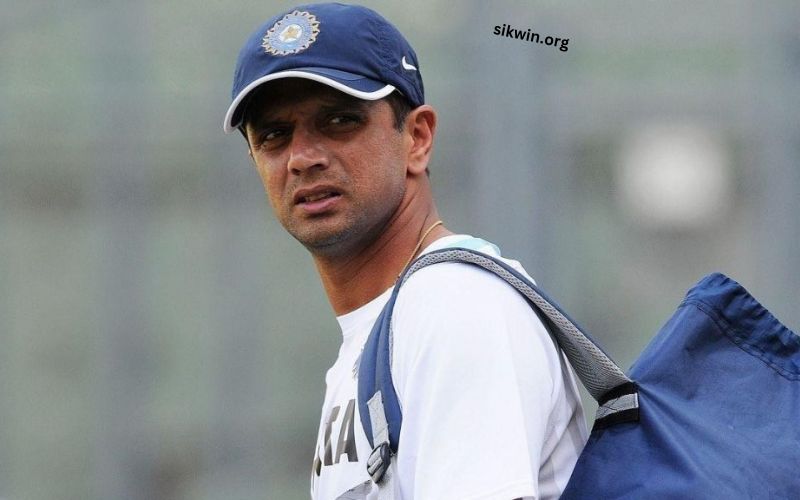Cricket in India is more than just a sport; it is a religion, a passion that unites millions across the diverse landscape of the country. Integral to the success of the Indian national cricket team over the years have been its coaches. These individuals, often former players themselves, have brought in strategic insights, discipline, and a fresh perspective that have propelled the team to new heights. This article delves into the history and impact of the various coaches who have shaped the Indian national cricket team.
Early Years: The Amateurs
In the early years of Indian cricket, coaching was not a formalized role. During the pre-independence era and shortly after, the team did not have a designated coach. Team strategies and player training were often managed by senior players and captains. For instance, when India played its first Test series in England in 1932, the concept of a professional coach was virtually non-existent. The players relied on their individual skills and the rudimentary guidance from experienced teammates.
The 1970s and 1980s: The Dawn of Professional Coaching
The 1970s marked the beginning of a new era for Indian cricket. With the advent of televised matches and increased public interest, the need for a structured approach to coaching became apparent. In 1971, when India registered its first Test series win in the West Indies, it was under the guidance of manager Hemu Adhikari, who took on the unofficial role of a coach. Adhikari, a former Test cricketer, emphasized fitness and fielding, areas that were previously neglected.
However, the concept of a full-time coach was still in its nascent stages. Bishan Singh Bedi, one of India’s greatest spinners, served as a player-manager-coach during the late 1970s and early 1980s. His tenure was marked by a focus on spin bowling and nurturing young talents like Kapil Dev, who would go on to become a legendary all-rounder.
The 1990s: The Professional Coach Era Begins
The 1990s heralded a significant shift with the appointment of the first full-time professional coach, Ajit Wadekar, in 1992. Wadekar, a former captain who had led India to series victories in the West Indies and England in 1971, brought a wealth of experience and a disciplined approach. Under his guidance, India won the Asia Cup in 1993 and had a successful tour of Sri Lanka.
Following Wadekar, the late 1990s saw the appointment of Anshuman Gaekwad and Kapil Dev. Gaekwad focused on building a robust team structure, while Kapil Dev’s stint was short-lived and tumultuous, marred by allegations of match-fixing that rocked Indian cricket.
The John Wright Era: Turning Point in Indian Cricket
The appointment of John Wright in 2000 marked a watershed moment. Wright, a former New Zealand cricketer, was the first foreign coach of the Indian team. His tenure saw a remarkable transformation in the team’s approach and performance. Under Wright, India reached the finals of the 2003 ICC Cricket World Cup, won the NatWest Series in England in 2002, and maintained an unbeaten home Test record.
Wright’s coaching philosophy was centered on building a cohesive unit, improving fitness standards, and fostering a competitive spirit. He played a crucial role in the development of young talents like Virender Sehwag, Yuvraj Singh, and Harbhajan Singh, who became mainstays of Indian cricket.
Greg Chappell: Controversy and Change
Greg Chappell, appointed in 2005, was another significant, albeit controversial, figure in Indian cricket coaching history. The former Australian captain’s tenure was marked by a series of highs and lows. Chappell’s emphasis on modern training techniques and aggressive tactics brought initial success, including a historic Test series win in the West Indies in 2006 and a maiden Test victory in South Africa.
However, his tenure was also fraught with conflicts, most notably with then-captain Sourav Ganguly, which led to Ganguly’s temporary ouster from the team. The 2007 ICC Cricket World Cup debacle, where India was eliminated in the group stage, ultimately overshadowed Chappell’s contributions, leading to his exit.
Gary Kirsten: The Golden Period
Gary Kirsten’s appointment in 2008 ushered in what is often referred to as the golden period of Indian cricket. The former South African opener’s calm demeanor and strategic acumen were instrumental in India’s successes during his tenure. Kirsten fostered a team environment based on mutual respect and open communication, which resonated well with the players.
Under Kirsten, India achieved the pinnacle of Test cricket, securing the number one ranking in 2009. His most significant achievement came in 2011 when India won the ICC Cricket World Cup after 28 years, under the captaincy of MS Dhoni. Kirsten’s ability to manage senior players and nurture young talent created a balanced and formidable team.
Duncan Fletcher and Ravi Shastri: Consolidation and Transition
Duncan Fletcher took over from Kirsten in 2011. The former Zimbabwean captain brought a wealth of experience, having previously coached England. Fletcher’s tenure was marked by mixed results; while India struggled overseas, there were significant successes in limited-overs cricket, including winning the 2013 ICC Champions Trophy.
Ravi Shastri, who had a brief stint as team director before becoming the head coach in 2017, focused on instilling a fearless and aggressive brand of cricket. Under Shastri, India achieved historic Test series wins in Australia (2018-19 and 2020-21) and became a dominant force in all formats. His collaboration with captain Virat Kohli was particularly effective in creating a resilient and competitive team.
The Rahul Dravid Era: Building the Future
Rahul Dravid, appointed as head coach in 2021, represents the latest chapter in Indian cricket coaching. A revered former captain and one of the game’s finest batsmen, Dravid’s coaching journey began with nurturing young talent at the Under-19 level and the India A teams. His emphasis on technique, discipline, and mental toughness has been instrumental in shaping the next generation of Indian cricketers.
Dravid’s tenure is expected to focus on building a sustainable pipeline of talent, ensuring a seamless transition as senior players retire. His approach aligns with the Board of Control for Cricket in India’s (BCCI) long-term vision of maintaining India’s status as a cricketing powerhouse.
Impact of Coaching on Indian Cricket
The evolution of coaching in Indian cricket has had a profound impact on the team’s performance and global standing. Coaches have played pivotal roles in refining players’ skills, introducing modern training techniques, and fostering a professional environment. The transition from amateur to professional coaching has mirrored India’s rise in international cricket, with each coach leaving an indelible mark on the team’s legacy.
The role of a coach extends beyond strategizing and training; it involves mentoring, managing egos, and creating a conducive environment for players to thrive. Coaches like John Wright, Gary Kirsten, and Ravi Shastri have exemplified this, guiding India through significant milestones and instilling a winning mentality.
Challenges and Future Directions
Coaching the Indian national team comes with its unique set of challenges. The intense scrutiny from media and fans, the high expectations, and the need to manage a diverse group of players can be daunting. However, it also presents an opportunity to make a lasting impact on one of the world’s most passionate cricketing nations.
Looking ahead, the focus will be on maintaining consistency across all formats, further enhancing the domestic cricket structure, and leveraging technology and data analytics for performance improvement. The role of the coach will continue to evolve, requiring a blend of traditional cricketing wisdom and modern managerial skills.
Conclusion
The journey of the Indian national cricket team coaches reflects the broader evolution of cricket in India. From the early days of informal guidance to the modern era of professional coaching, each coach has contributed uniquely to the team’s success. As Indian cricket continues to grow, the role of the coach will remain central to shaping the future of the game, nurturing talent, and achieving new heights on the global stage.




